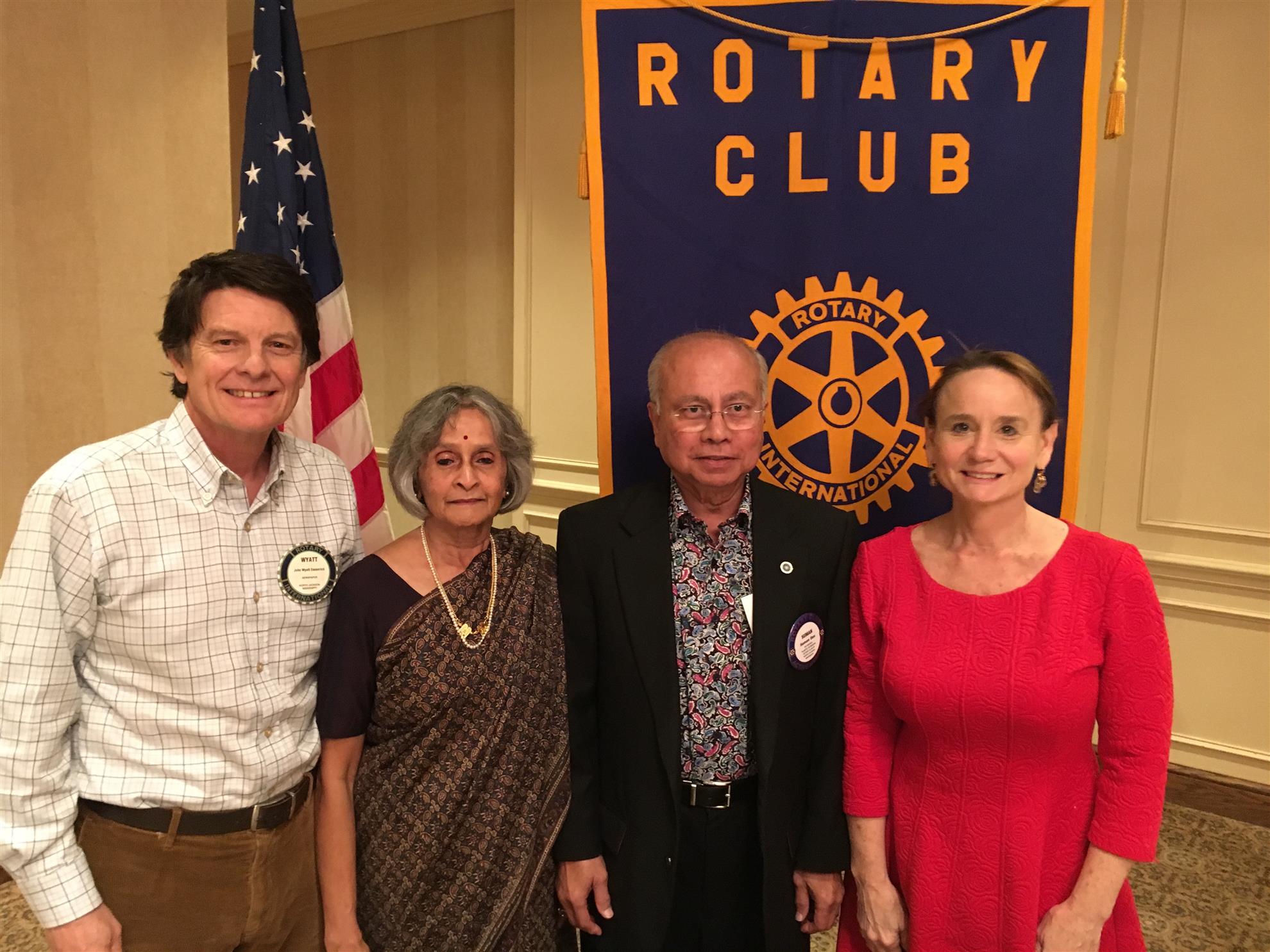Mrs. Seetha Srinivasan speaks to Rotary Club of North Jackson
"Hinduism is a religion, or a way of life, found most notably in India and Nepal. Hinduism has been called the oldest religion in the world, and some practitioners and scholars refer to it as Sanātana Dharma, "the eternal law," or the "eternal way," beyond human origins. Scholars regard Hinduism as a fusion or synthesis of various Indian cultures and traditions, with diverse roots and no founder. This "Hindu synthesis" started to develop between 500 BCE and 300 CE following the Vedic period (1500 BCE to 500 BCE).
Although Hinduism contains a broad range of philosophies, it is linked by shared concepts, recognisable rituals, cosmology, shared textual resources, and pilgrimage to sacred sites. Hindu texts are classified into Shruti ("heard") and Smriti ("remembered"). These texts discuss theology, philosophy, mythology, Vedic yajna, Yoga, agamic rituals, and temple building, among other topics. Major scriptures include the Vedas and Upanishads, the Bhagavad Gita, and the Agamas. Sources of authority and eternal truths in its texts play an important role, but there is also a strong Hindu tradition of the questioning of this authority, to deepen the understanding of these truths and to further develop the tradition.
Prominent themes in Hindu beliefs include the four Puruṣārthas, the proper goals or aims of human life, namely Dharma (ethics/duties), Artha (prosperity/work), Kama (desires/passions) and Moksha (liberation/freedom/salvation); karma (action, intent and consequences), samsara (cycle of rebirth), and the various Yogas (paths or practices to attain moksha). Hindu practices include rituals such as puja (worship) and recitations, meditation, family-oriented rites of passage, annual festivals, and occasional pilgrimages. Some Hindus leave their social world and material possessions, then engage in lifelong Sannyasa (monastic practices) to achieve Moksha. Hinduism prescribes the eternal duties, such as honesty, refraining from injuring living beings (ahimsa), patience, forbearance, self-restraint, and compassion, among others.
Hinduism is the world's third largest religion, with over 1 billion followers or 15% of the global population, known as Hindus. The majority of Hindus reside in India, Nepal, Mauritius, the Caribbean, and Bali in Indonesia.
We thank Ms. Srinivasan for her very interesting presentation on her religion. She (2nd from left) is shown in the accompanying photo with club President Wyatt Emmerich (left), and Club members Virginia Carlton (right) and Suman Das (2nd from right) who introduced her.